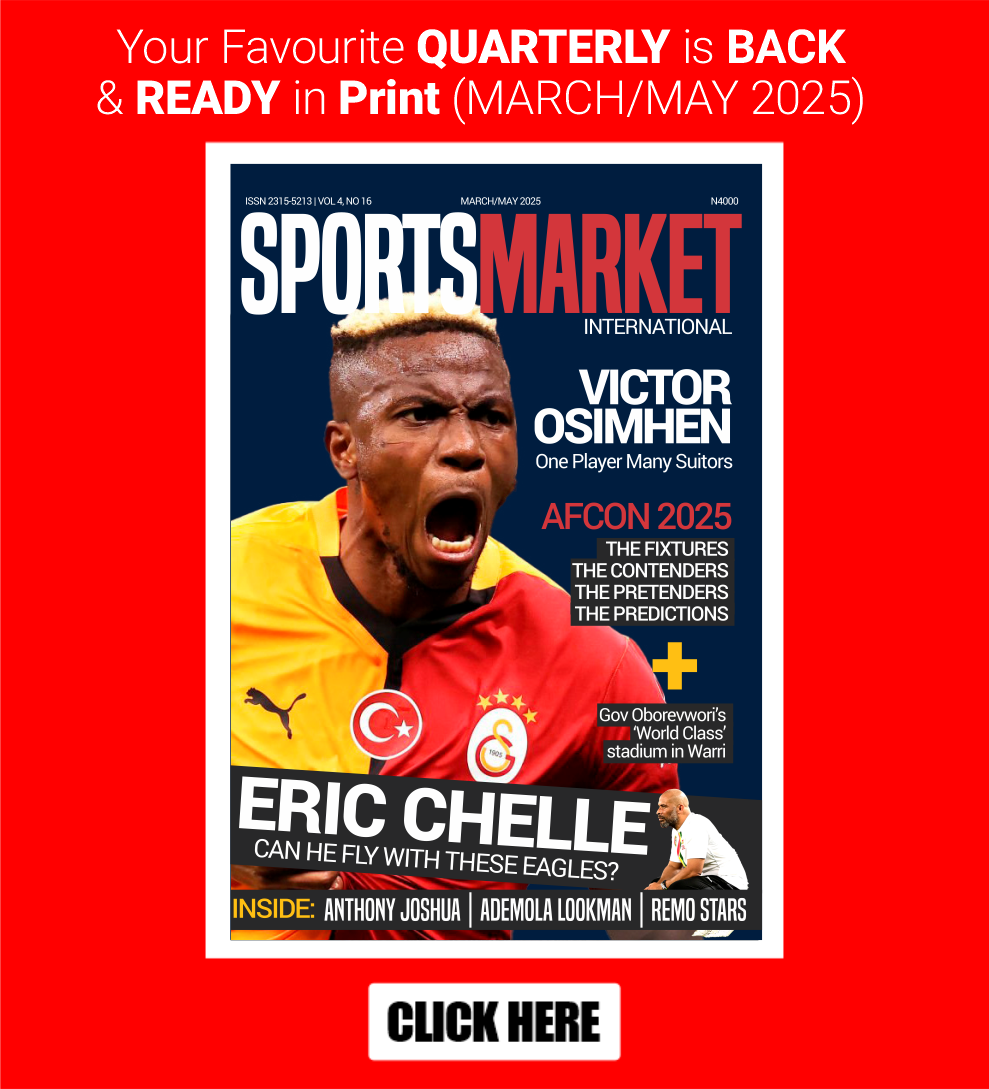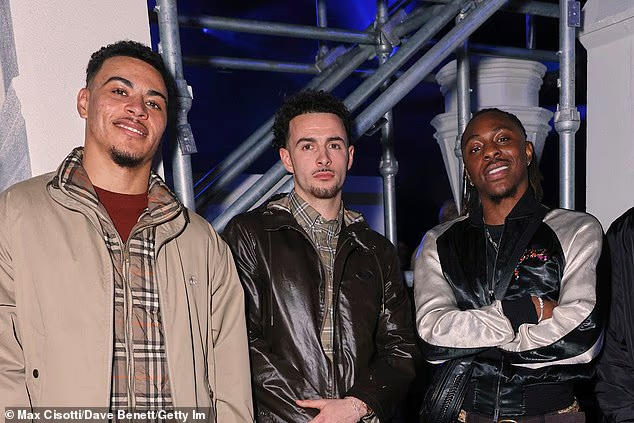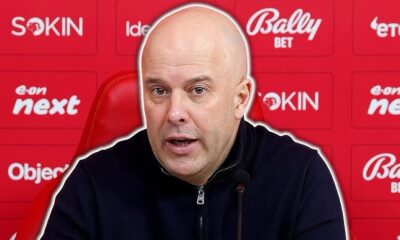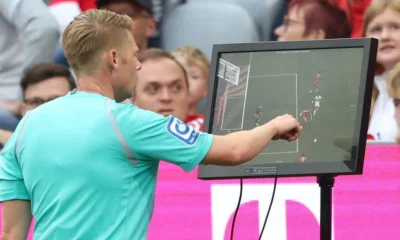Marketing & Sponsorship
Nike, Adidas bet big on World Cup football shirts
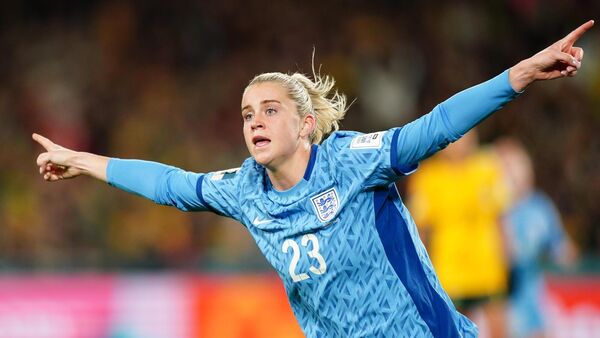
When England and Spain meet in the World Cup final on Sunday, millions of football fans will be glued to their televisions. Many will gamble on the outcome. But for companies like Nike and Adidas, there’s a whole other bet playing out: whether they made enough merchandise to satisfy the euphoric demand from fans of the winning team.
The companies decided months ago how many replica and authentic jerseys to manufacture for each of the women’s teams. Those decisions were based on a combination of historical shopping patterns for each country, conversations with retail partners and a fair bit of conjecture. Getting the picture wrong can have real consequences — both in terms of lost sales and angered fans.
“There is no formula for it — I wish there was,” Bjorn Gulden, chief executive officer of Adidas, said of the process for forecasting demand. “If there was someone who knew that, that person would be hired immediately.”
For this year’s Women’s World Cup, the stakes are particularly high. This is the first time the tournament has featured 32 teams and the prize money is triple what it was in 2019. Adidas, Nike and Puma have invested more than ever into marketing and outfitting some of the players. Globally, interest appears to be at an all-time high.
Now, for the wrinkle that nobody could have predicted: many of the tournament favorites, including every country that’s ever won the Women’s World Cup before, has already been eliminated.
Too many, too few
There are two ways to misjudge demand. If you produce too much of a country’s jerseys, it could take months to work through all that excess inventory (perhaps leading to steep markdowns in price.) That’s what Puma had to do twice in recent years after Italy’s men’s football team failed to even qualify for the World Cup.
The other mistake — the real sin in the eyes of fans — is when you don’t produce enough of a particular jersey. Puma experienced that too, when it failed to order enough Manchester City jerseys in time for a swell in demand after the Abu Dhabi majority-owned club won England’s so-called “treble” — the Premier League title, the FA Cup and Europe’s Champions League — over a few weeks this spring.
Learn more
“Demand was significantly higher than what we have anticipated,” Puma CEO Arne Freundt acknowledged. “That was an opportunity for us to re-order and reproduce.”
It may have also cost Puma money. That’s because when a team wins a big title — or a high-profile player does something remarkable, like shocking the world by changing teams — it tends to create a massive spike in demand for jerseys that lasts for just a few days, according to Doug Mack, CEO of Fanatics Commerce.
If you can’t meet that demand right away, chances are you’ll lose potential business as disappointed fans give up and move on with their lives.
“That first 72 hours is a disproportionately interesting selling opportunity,” Mack said in an interview.
Seeing the future
There are ways to satisfy fans, nonetheless. Merchandise companies often flood the market with easily stockpiled items that only require a little final printing work or other touches — such as novelty championship hats, T-shirts and other collectibles. Uniforms, however, typically require more lead time to manufacture properly, which often forces brands to place new orders with factories that may not have much capacity at the time.
To hedge against such risks, companies such as Fanatics have experimented with new ways of predicting demand. A newcomer to the sports merchandise world, Fanatics runs, among other things, the e-commerce stores for all sorts of professional leagues and sports federations. It also licenses Nike’s Swoosh to produce the fan replica and authentic jerseys for, among other things, the National Football League.
This past spring, it leveraged its professional football contacts to create a model predicting the probability that superstar quarterback Aaron Rodgers would get traded to the New York Jets, as rumored at the time.
As the odds got better, in Fanatics’ eyes, it ordered up a huge stockpile of blank Jets jerseys. That came in handy when the trade actually happened, since Rodgers became the most popular jersey, selling more than the next nine players combined, according to the company. “All we had to do after the trade is finish the jerseys with his name and number,” Mack said.
It’s not always so easy. Take the case of Lionel Messi announcing his plans in early June to sign with Major League Soccer’s Inter Miami. On paper, this should have been a slam dunk for Adidas, which has had an endorsement deal with Messi for more than a decade and which outfits every team in the MLS.
Yet there were a couple of challenges. Until late in the process, Messi was also rumored to be considering signing again with Barcelona, his old club, or even a team in Saudi Arabia. The other problem: Inter Miami’s uniforms are bright pink.
As a result, fans in mid-August are still required to “pre-order” Messi’s Miami jersey from Adidas, which is scrambling to ratchet up supplies.
“Miami is playing in a color that is not normally very commercial to have on stock, so we didn’t really have that much of the material,” Adidas boss Gulden explained. “I can assure you that both factories and aircrafts and whatever we can use has been used to fulfill that demand.”
Underdogs
Companies risk becoming punching bags when they’re caught off guard. England’s Mary Earps has taken Nike to task for not making fan versions of women’s goalkeeper jerseys (Adidas also doesn’t make these.) Meanwhile, Adidas has been criticized for not making versions of the women’s World Cup uniforms in men’s sizes, Gulden said.
Then there are the usual challenges with big tournaments. As ever, there have been some high-profile upsets, with Germany exiting in the first round (sorry, Adidas) and the US getting eliminated early in the knockout stage (sorry, Nike).
While that could leave these companies with more merchandise than fans want, it’s not necessarily bad for the sport. When the same teams win over and over, their fans don’t necessarily go crazy with enthusiasm, Mack says. When an underdog wins, though, it can create rare levels of excitement.
As it turned out, each of the two big sportswear makers ended up with a team in the final: Nike sponsors England, while Adidas sponsors Spain.
“First-time champions do incredibly well,” Mack says. “Those fan bases get activated.”
Bloomberg

-

 Premier League2 days ago
Premier League2 days agoArsenal Star Olivia Smith Stretchered Off In FA Cup Scare — What It Means For The Gunners
-

 LaLiga2 days ago
LaLiga2 days agoHansi Flick Explains Lamine Yamal’s Frustration After Barcelona Win
-

 News2 days ago
News2 days agoAngry Arne Slot Slams Liverpool’s ‘Worst Performance’ Despite Late Win At Nottingham Forest
-

 Local News2 days ago
Local News2 days agoAlex Iwobi Masterclass Powers Fulham Revival At Sunderland
-

 Local News2 days ago
Local News2 days agoNaija Stars Abroad: Goals, Grit And One Absence That Shook Istanbul
-

 Premier League2 days ago
Premier League2 days agoAlex Iwobi: The Manager’s Dream Lighting Up Fulham’s Season
-

 News12 hours ago
News12 hours agoNapoli Fan Hospitalised After Domestic Dispute Sparks Over VAR Decision
-

 News12 hours ago
News12 hours agoArsenal Star Eberechi Eze Leads Premier League Glam Squad At London Fashion Week


